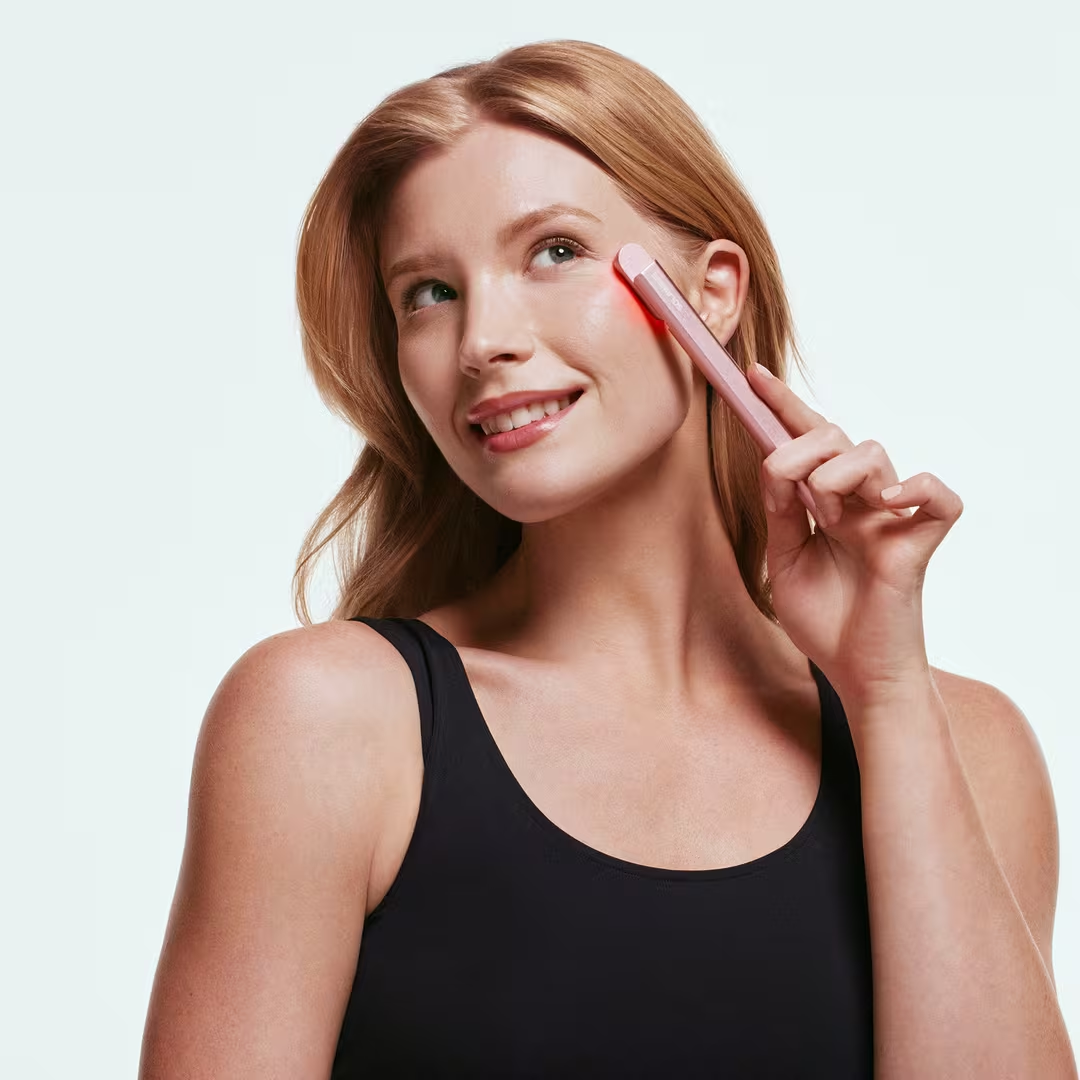Essential Oils for Depression and Stress: How They Help
Are you feeling down, stressed out, or anxious? If so, you're not alone. According to the National Institute of Mental Health, an estimated 16 million adults in the United States suffer from major depression each year. And while there are many effective treatments available for depression and other forms of mental illness, some people may prefer to try alternative therapies first. If that's you, consider using essential oils to help relieve your symptoms. Essential oils have been used for centuries to improve mood and promote feelings of well-being. In fact, many people find them just as effective – if not more so – than prescription medications. So if you're looking for a safe and natural way to reduce stress and ward off depression, read on! Let's talk about essential oils for depression and stress. You can even make y our own face mask spray as well as other homemade natural products.

Essential oils for depression and stress
When it comes to essential oils, pure is definitely better. Pure essential oils are concentrated extracts from plants. They retain all of the plant's natural properties, making them much more potent than other plant-based products. Pure essential oils are free from synthetic ingredients, which means they retain all of their natural therapeutic properties. This is why pure essential oils are often used in aromatherapy and inhalation therapy. When inhaled, pure essential oils can help to improve respiratory function, relieve stress, and boost your mood. In contrast, popular essential oils are often diluted with carrier oils or even completely synthetic. In addition, the quality of pure essential oils is generally much higher than that of popular essential oils. This is because pure essential oils are produced using only the highest quality plant materials. Finally, pure essential oils can be used in a variety of ways, including inhalation and topical application. So if you're looking for the best way to enjoy the benefits of essential oils, be sure to choose pure over popular. Now let's talk about essential oils for depression and stress and which ones are good.
Lavender
According to the National Institutes of Health, lavender essential oil is commonly used to treat anxiety and depression. A 2010 study found that lavender oil was effective in treating physical symptoms of an anxiety disorder, and a 2016 review found that lavender oil was helpful in reducing symptoms of depression. This fragrant oil has been used for centuries to promote relaxation and emotional balance.When using lavender essential oil for depression, it is important to choose a quality oil and to dilute it with a carrier oil. You can then apply the oil to your skin or inhale it. If you are pregnant or breastfeeding, consult with your healthcare provider before using lavender essential oil.
Bergamont
Bergamot oil is another versatile oil that can be used to improve mood and reduce stress levels. This citrusy oil has a refreshing scent that can brighten any space. Bergamot oil has also been shown to help alleviate symptoms of anxiety and depression.

Citrus Oils
In one animal study, scientists found that exposure to the smell of citrus oil helped to reduce levels of stress hormones in rats that had been subjected to chronic stress. This suggests that the sense of smell may play a role in the development of depression.
These studies suggest that essential oils may help to relieve symptoms by affecting the nervous system. While more research is needed, essential oils may be an effective natural treatment for depression. The nervous system plays a key role in the antidepressant effects of essential oils, and the compounds in these oils may help to modulate neurotransmitter levels in the brain. A recent animal study has shown that certain essential oils may help to relieve symptoms of depression. The study found that exposure to essential oils can help to reduce the effects of chronic stress, and that the sense of smell may play a role in the antidepressant effects of these oils. This animal study provides promising evidence that essential oils may be an effective treatment for depression, and further research is warranted.
Essential oils have been used for centuries to help relieve a variety of ailments, and recent studies suggest that they may also be effective in treating depression and panic attacks. One small study found that an essential oil blend consisting of lavender oil, bergamot oil, and Rosemary oil was significantly more effective than a control group in reducing symptoms of depression. In another study, participants who used an essential oil diffuser reported positive effects on their mood and energy levels. While further research is needed to determine the exact mechanism by which essential oils work, there is evidence that they can be an effective tool in the fight against depression. Just be sure to consult with a doctor before using essential oils, as some people may have an allergic reaction.
Ylang Ylang
When it comes to best essential oils for depression, ylang ylang essential oil is one of the most popular options. This oil is derived from the flowers of the Cananga tree, and it has a sweet, floral scent. Ylang ylang has been shown to help balance the limbic system, which is responsible for regulating mood. In addition, this oil is believed to help increase feelings of happiness and well-being. If you're looking for an essential oil that can help to relieve symptoms of depression, ylang ylang oil is a great option to consider.
Roman Chamomile
Roman chamomile essential oil is one of the most popular essential oils used for stress relief and depression. The oil is extracted from the Roman chamomile plant, which is a member of the daisy family. Chamomile essential oil has a sweet, fruity scent that is similar to apples. The oil is believed to have calming and soothing properties that can help to relieve stress and anxiety. It is also thought to have antidepressant qualities that can help to improve mood and reduce symptoms of depression. Chamomile essential oil can be used in a diffuser, added to bath water, or massaged into the skin. When used aromatherapy, the oil can help to promote relaxation and reduce stress levels. When used topically, the oil can help to soothe the skin and reduce inflammation. Roman chamomile essential oil is an effective natural remedy for stress relief and depression. Roman chamomile is one of the most popular choices for stress relief, and it has few side effects.
However, it is important to remember that essential oils should not be used as a substitute for professional medical care. If you are experiencing symptoms of depression, please consult a mental health professional. This oil can be diffused in an aromatherapy diffuser or applied topically to the skin. However, it should be diluted properly, as roman chamomile can cause skin irritation in some people.
There's no doubt that essential oils have been gaining popularity in recent years. And for good reason! These potent plant extracts can have a profound effect on emotional responses, circulation, and even hormone levels. Not to mention, they just plain smell amazing. But with so many different oils to choose from, it can be hard to know where to start.
There are a number of essential oils that can help relieve the symptoms of depression, especially when used in combination with each other. For pregnant women, a good option is to combine clary sage and lemon balm in an aromatherapy massage. This combo can help to reduce stress and promote feelings of wellbeing. If you're struggling with anxiety, consider a diffuser blend of lavender and bergamot. This calming combination can help to ease tension and promote relaxation. For those dealing with insomnia, chamomile and sweet orange oil can be helpful in promoting a restful night's sleep. And for general feelings of depression, try a diffuser blend of grapefruit, rosemary, and basil. This uplifting combination can help to improve your mood and increase energy levels.

Why Should You Seek Depression Treatment
Depression is a common mental health problem, which is sometimes referred to as the “common cold” of mental health. With the rise in technological advancement, more and more people are facing depression issues. The World Health Organization (WHO) estimates that depression affects approximately 350 million people worldwide. While a physical cold may necessitate a week of couch time, the “common cold of mental health” can vary in severity.
Common types of depression are frequently effectively treated with talk therapy, such as cognitive behavioural therapy (CBT), prescription medication, or both. Changes in lifestyle are frequently beneficial as well. Severe forms of depression, on the other hand, may necessitate more intensive treatment. Ketamine-assisted psychotherapy, or “KAP”, is becoming one of the most popular new forms of depression treatment therapy. Here are some reasons why you should consider depression treatment.
Your current depression treatment has not been very effective.
Typical depression treatments do not work immediately. A typical course of CBT may last eight to ten weeks, and most antidepressant medications take four to six weeks to show results. Before changing course, it is critical to give these interventions at least a few months to work.
Even if they don't work after a few months, switching medications may make a significant difference. Everyone reacts differently to medications, and it is currently impossible to predict which medication will work best for a specific person. It could take a year or more of trial and error to find a good fit.
You Wish to Take Part in Intensive Therapy
A weekly therapy session, with or without medication, can be effective for most people suffering from depression. However, there is always a tug of war between recovering from depression and dealing with everyday stress. Sometimes your therapist appointment feels like just another thing you have to fit into your schedule.
Even if your appointment is the only thing on your calendar, it can be difficult to keep it if you are suffering from severe depression. Entering depression treatment allows you to focus solely on recovery, with no distractions. This enables more frequent and intensive therapy sessions.

You require a change of scenery.
A change of scenery can have a significant impact on your mental state. It's easy to fall into a rut when you do the same things in the same places every day. It becomes difficult to even consider other options. Visiting a new location automatically engages more of your brain. If you've been struggling with persistent depression for a while, a change of scenery is unlikely to cure it completely, but it will almost certainly help.
Going to a new location also forces you to break free from old habits. A healthy routine can be extremely beneficial, but a mediocre or bad routine can be detrimental.Treatment in a new location makes it easier to break bad habits and form healthy new ones. It's like a new beginning. You can take your new habits with you after treatment.
You have a Substance Use Disorder
Half of those who suffer from depression also struggle with substance abuse. A substance use disorder is not always an addiction. Using alcohol or drugs to cope with depression can lead to complications. Excessive substance use, even if not an addiction, can exacerbate depression. Effective Depression treatment therapy also necessitates integrated substance abuse treatment.
It must be noted that availing of depression therapy is not a bad thing at all. You need to talk about your mental health problems with your loved ones and if you are not able to talk freely, then get in touch with a depression therapist as a professional can assist you better. We hope we have given a good overview on when you should seek help for depression as well as a good list of essential oils for depression and stress.






